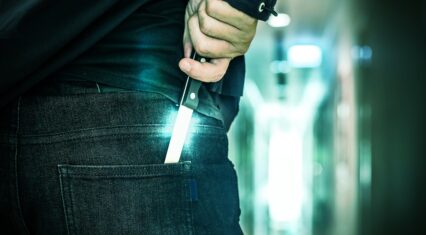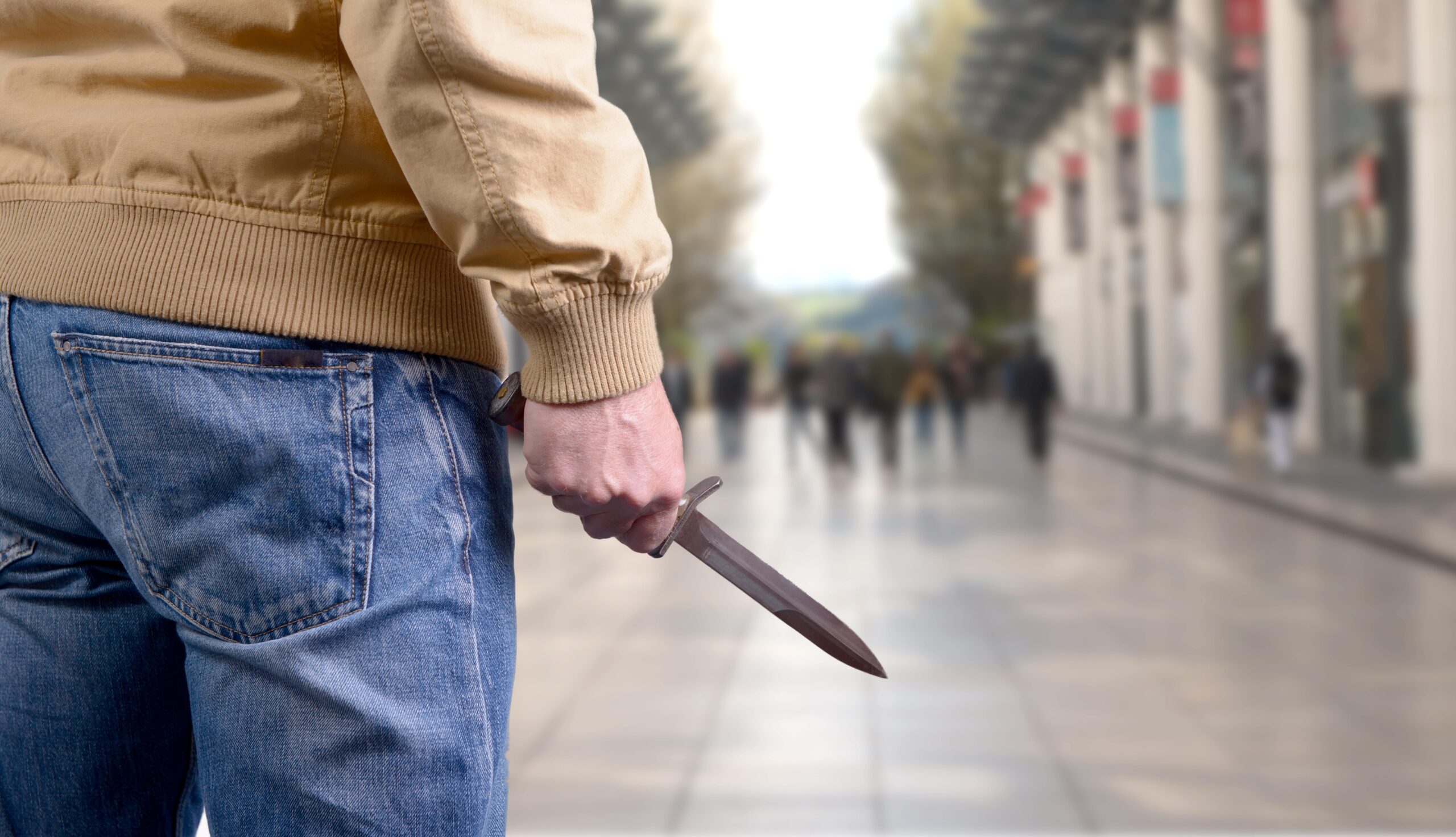Custody Of Knife In Public – s 11C Summary Offences Act 1988
Being convicted of having custody of a knife in public can be stressful, restricting your career and travel. Speak to one of our Sydney team of senior criminal defence lawyers on how to prepare your case to maximise your chances at avoiding a criminal record, something they have successfully achieved countless time for over 20 years.
Call us now on (02) 8606 2218 to book a free first consultation with an experienced Criminal Defence Lawyer.
Your Options in Court
You will be found not guilty to a charge of having custody of a knife in a public place or school if police can prove each of the following elements beyond reasonable doubt:
- You had a knife in your custody; and
- You had the knife in a public place or school;
If police are unable to prove any one of the above, you will be found not guilty and your charge dismissed.
Defences to this charge
You will be found not guilty if any one of the following defences to this charge apply to you:
- Reasonable excuse: Where you had a reasonable excuse for having custody of the knife. For example, due to your lawful occupation, education or training, to prepare or eat food, lawful recreation, sport or entertainment, trade, knife collections, official uniform or genuine religious purpose.
- The knife was a plastic knife designed for eating purposes or the blades other than knife blades or blade forming part of a machete, cleaver or sword.
- You did not know that you had custody of the knife.
- Duress or necessity
Having custody of a knife solely for self defence, or defence of another is not considered a reasonable excuse.
Speak to one of our senior lawyers for advice on a realistic defence, and how to strengthen this from the beginning. There will be a focus to first negotiate with police to drop the charge early.
Call us now on (02) 8606 2218 to book a free first consultation.
When pleading guilty for a charge of custody of a knife in public, it’s critical to get some realistic and practical advice from an experienced senior lawyer on how to avoid a criminal record. Below is critical tips and information on the best way to achieve this, explained by our team of senior lawyers who have achieved this on countless occasions for over 20 years.
25% discount on punishment
Pleading guilty to a charge of custody of knife in public at an early stage of your case allows the Judge to give you a discount on your punishment of up to 25%, resulting in a lighter outcome in court. The effect of pleading guilty early also reflects your remorse and contrition, allowing further leniency with better chances of avoiding a criminal conviction.
The later you plead guilty, the less the discount gets. This is why it’s critical to get experienced advice as early as possible to ensure you don’t miss out.
Good character references
A well drafted good character reference should be from people you know well i.e. family, colleague, employer, friend. Each person should tell the Judge their opinion of your excellent character over the time he or she knows you, your remorse and insight in your actions. All this allows the Judge to further reduce your punishment, resulting in a much better outcome in court.
Our senior lawyers will guide you through the entire process of gathering character references from the right people. This may include a letter of remorse, apology and insight from you. A powerful character reference may convince a Judge to give you a section 10 non conviction.
Negotiate to drop charges
The charge of a custody of knife in public can potentially get dropped by getting an experienced specialist criminal lawyer to carefully study the police evidence, pick out all the problems in it, and approach police with reasons why it should be dropped early the case.
Our team of senior lawyers have convinced police to drop this charge countless times over the years. Having perfected this skill for over 20 years, you can rest assured that you will be in the safest of hands.
Negotiate facts
The police will draft a set of facts expressing your offending conduct in what you did and how it was done. This will be the document the Judge will read right before deciding on your punishment. The police drafted set of facts is often one sided and expresses you in the worst way, far from the truth. For this reason it can often result in heavier punishments from the Judge.
You can, and our team of senior lawyers often do, negotiate these set of facts before its handed to the Judge to read. It’s important to do this in order to reflect what really happened, putting you in a better light to the Judge. This will likely result in a much more lighter punishment with better chances of avoiding a criminal conviction.
Psychologist reports
A court report from a highly respected and experienced psychologist or psychiatrist expressing an expert opinion on your mental state at the time, your insight of your behaviour and your remorse can make a dramatic difference in avoiding a criminal record, allowing the Judge to give further leniency.
Our senior lawyers will guide and refer you to one of the top and most respected psychologists or psychiatrists best suited to your case, for the purposes of a report, to maximise your chances of avoiding a criminal record.
Maximum penalty
The maximum penalty for a charge of a custody of a knife in public is a term of imprisonment or up to 2 years and/or a fine of up to $2,200.
The Courts rarely give out maximum punishments and if they do give it, it’s usually given to the most serious kind of case. There are other options of punishment noted below.
Types of penalties
The Judge can give you any one of the following kinds of punishment depending on the above noted factors and the way your case is presented:
- Section 10 Dismissal
- Conditional Release Order
- Fine
- Community Correction Order
- Intensive Correction Order
- Full Time Imprisonment
To maximise your chances of getting the best possible outcome to avoid a criminal record, it’s critical to have an experienced senior lawyer by your side, thoroughly preparing and powerfully presenting your case to the Judge in the best possible way to your case. Speak to one of our Sydney defence lawyers now on (02) 8606 2218.
 (02) 8606 2218
(02) 8606 2218








